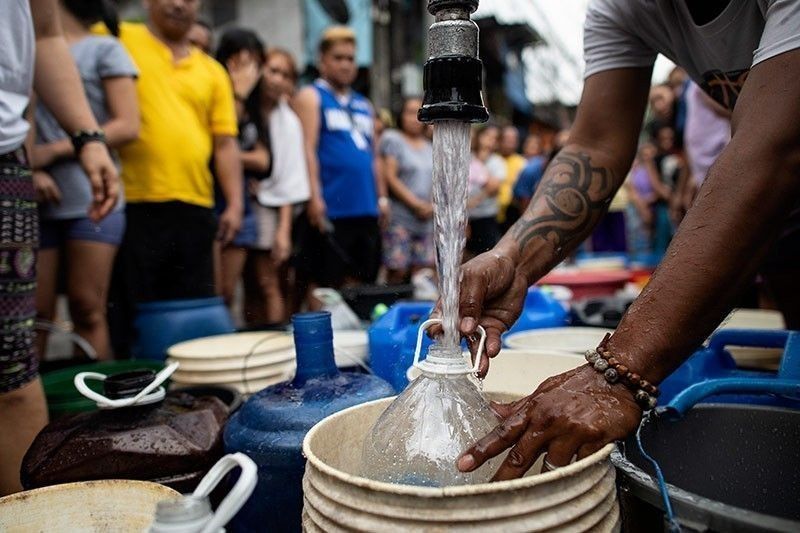Commentary: Water distribution from public to private sector and back?

President Rodrigo Duterte’s latest rants and expletives against the water concessionaires in Metro Manila may be bringing nothing to us except more problems.
Duterte threatened Manila Water and Maynilad that he will end their concession agreements, calling these “onerous.” But what he calls onerous are actually models of a working public-private partnership and recognized for the transparency and the business models used.
The privatization of water distribution—which effectively responded to the water crisis in 1997—is now being portrayed as the culprit and has been receiving the brunt of the blame—with threats of nationalization to boot—for this round of water crisis. So, from being the knights in shining armor two decades ago, Manila Water and Maynilad are portrayed by Duterte as the villains.
The privatization stands firm on what it has accomplished. Available data show that the number of water service connections has increased from the pre-privatization count of 0.779 million in 1994 to 0.996 million and 1.446 million for Manila Water and Maynilad, respectively, in 2019.
Moreover, from the 61% or so rate of non-revenue water in 1994, Manila Water and Maynilad were successfully able to reduce it by 2019 to 11.5% and 27%, respectively.
Ironically, Duterte wants to bring back to government hands the water distribution operations when it was, from all accounts, the negligence and inefficiency of government that caused the water crisis in 1997, to begin with. It has arbitrarily declared that they are nullifying the extension of the concession contracts, effectively cutting them short by 15 years.
Now, this is scary. In a democracy, the government is responsible for upholding democratic principles, such as the paramount importance of the rule of law.
This does not mean, however, that the government—nor Duterte—is above and exempted from the law. Legal principles dictate that the agreement between the parties (of a contract) is the law between the parties. To unilaterally and without due process cancel contracts is whimsical at best and autocratic at worst.
This has sent a chilling effect to the business community. At a time that we are losing momentum in our foreign direct investments (FDIs) and in the ease of doing business, announcing to the world that our government does not respect contracts is not very encouraging for would-be investors.
There is a reason why such contracts are longer. It allows the concessionaires to invest in the venture and have sufficient time to recoup their investments. No self-respecting business entity would invest heavily on an opportunity that is hinged on a short-term contract.
Thus, it makes logical sense when the concessionaires raised the specter of higher water distribution rates if and when their contracts are shortened—and by 15 years at that.
With paranoia kicking in, Duterte took that announcement from the concessionaires as an affront to his monarchical image of himself. He saw it as the private companies holding him hostage, or sending him an ultimatum.
While Duterte may fancy himself as a very decisive strongman, unfortunately for him, he is not the King that he imagines himself to be—expecting anything he wills to be obeyed and to happen in a jiff.
Another important side of the issue is what happens to our water services. Duterte’s bravado may come from the fact that he will be out of the presidency by the time all hell breaks loose in 2022 when the concession agreements end, if he has his way.
For effective governance, there should be a high degree of continuity and stability. We should view the directions, programs and projects of the government on a long-term continuing basis, rather than as short-term chapters of each administration. But, most importantly, we should avoid the whimsical arbitrariness of autocracy.
Edwin Santiago is a fellow and and member of the editorial board of think tank Stratbase ADR Institute.
- Latest



























